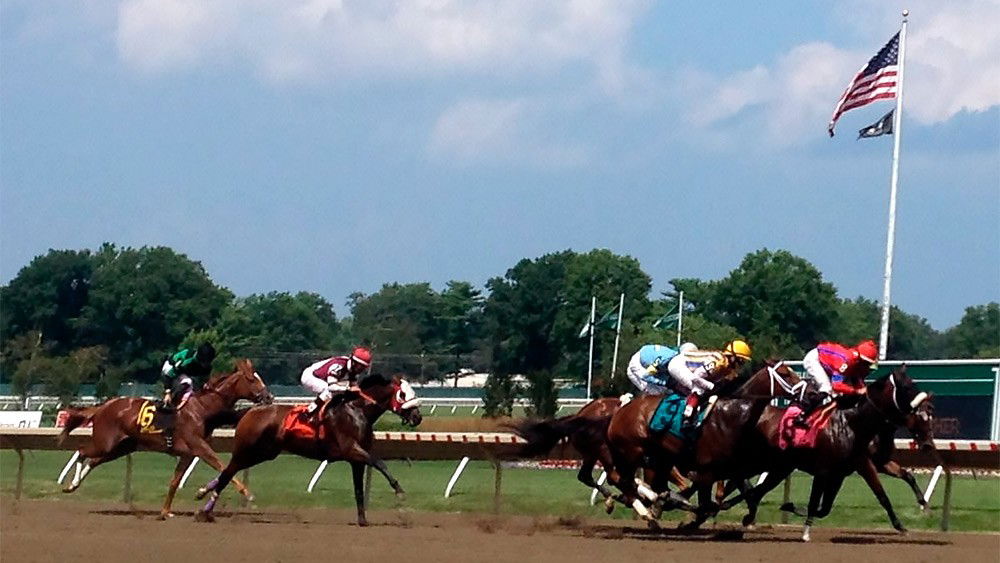The benefits, pitfalls and insignificance of Australia’s latest proposal to ban credit card gambling

Mason Kelliher is a website manager and content writer at mybettingsites.com/au/, a bookmaker comparison site in Australia. He has a deep knowledge of Australia’s 70+ legal online gambling operators and he also manages several other websites active in markets such as New Zealand and the United States.
Unless you are in the industry (and even if you are), it may come as a shock to learn that Australia consistently ranks at the top of the list of nations whose citizens lose the most money gambling.
This is despite the fact that Australia’s online gambling industry is one the toughest in the world with tough entry requirements, a restriction on sign up bonuses and promotions and a ban on many forms of wagering including in-play sports betting and online casino games.
In recent years, data from H2 Capital has shown that Australians consistently lose more from real-money gambling than their South Pacific neighbours in Hong Kong, Singapore and New Zealand as well as in other countries where per capita gambling losses are significant like Finland, Japan, Ireland, Norway and the United States.
In 2017, Aussies lost $US958 per adult, over 20 per cent more than the next country, Hong Kong, where players lost $US768 per adult.
These numbers represent money spent on games of chance as well on sports and racing betting, although the amount spent on casino games and lottery games represents a much higher proportion than the amount spent on sports and racing wagering.
2018-19 Australian Gambling Statistics show that online gambling on sports and racing only accounts for $AU11bn of Australia's $AU226bn in gambling turnover with the majority, $AU188bn, coming from casino, lottery and other games of chance. The remaining $AU27bn spent on gambling can be attributed to horse racing expenditure at on and off course bookmakers and local TABs.
Despite this, the calls to ban credit card payments at online sports betting sites seems to be the major focus of the Australian government's attention right now. However, as the numbers show, much of the problem gambling that occurs in Australia doesn’t come from sports betting but rather, poker machines or ‘pokies’ which can be found across the country in bars, clubs and restaurants.
It is also important to note that credit card payments have not been accepted for poker machines and casinos for many years now and yet the amount of money spent on these (and other games of chance) is 20 times higher than it is for sports betting.
In fairness, the percentage of recent losses attributed to sports betting are likely to be somewhat higher in 2020 and 2021 because of nation-wide lockdowns which saw a significant shift from retail in-person gambling to online sports betting.
This is supported by the fact that the biggest corporate Australian bookmakers like Sportsbet, Neds and Ladbrokes recorded record numbers in 2020.
Sportsbet’s parent company Flutter Entertainment saw a 59 per cent increase in Australian revenue while Entain (which owns Neds and Ladbrokes) obtained similarly impressive growth numbers of 55 per cent.
However, even a 100% increase in the size of the online sports betting industry is insignificant when compared to the massive share that casino and other casino-like games have in the Australian iGaming market.
To summarize, Australia’s online sports betting industry is already heavily restricted but most of the billions of dollars in gambling losses come from poker and casino games - so why the calls to ban credit card sports betting?
The problems associated with credit card gambling
Don’t get me wrong, I’m not blind to the fact that online sports betting can, and is, very harmful to many players.
In fact, 2015 statistics showed that over half a million Australians regularly wagered on sports and 41 per cent of these players experienced some form of gambling harm including asking friends or family for financial help and/or an inability to pay bills on time.
The incidence of problem gambling related harms is also likely exacerbated by credit card payments.
As we all know, the play-now, pay-later nature of credit cards undoubtedly adds to the financial insecurity of some problem gamblers who must find a way to pay back their losses and cover any interest accrued.
However, credit cards are not the only way players can pay for their online gambling activities. Today, Australian betting sites offer a range of other payment options including eWallets, debit cards and cash.
As I have already stated, credit cards cannot currently be used to fund poker machine games, yet these and other games of chance represent a significantly higher proportion of gambling losses and problem gambling in Australia.
While there are real problems associated with credit card gambling, a payment ban for online sports betting sites may not have the desired effects, or any great effect (as seen in the case of pokies).
There is even a chance that this new law will make matters worse.
The effects credit card gambling ban may have
The first outcome that we may expect from a credit card ban on online betting websites is a decrease in gambling expenditure and less problem gambling.
Anecdotal evidence from problem gamblers suggest that this may help, but that it is unlikely to have a significant impact on the rates of problem gambling, especially given the fact that many forms of gambling already don’t accept credit cards.
In the most extreme cases, without credit cards or money of their own, addicts may even turn to private loans, bank loans, or even stealing to fund their gaming.
The other side of the coin is that making legal online betting harder to use (where restrictions and limits are already in place), will turn players to illegal offshore websites that accept credit card payments as well as forms of gambling that are outlawed in Australia (such as online casinos and live online sports betting sites).
The failure to address real areas of concern
The truth is that sports betting is an area of concern for those who work to minimise problem gambling. However, when you consider the relative market size for this type of gambling in Australia and compare it to things like poker machines, it’s just a drop in the bucket.
It has been estimated that up to 50% of pokie players are addicted, the same is not true for online sports betting.
The other area of major concern is the prevalence of illegal online operators that target Australian players.
These sites offer many forms of restricted wagering, payment methods such as credit card, as well as inducements to sign up in the form of bonuses and promotions - which are heavily restricted by government authorities for legal operators.
In fact, a quick Google search will show a range of affiliate websites targeting Australian players that advertise and explain how to use these illegal sites.
It wasn’t until August this year that the Australian Media and Communication Authority (ACMA) issued its first blocking order for affiliate websites involved in the practice of promoting these websites but there is still much work to be done.
According to their own report, in 2018 the ACMA estimated that 40.3% of Australians would still be using offshore operators for their bets.
The takeaway
A banning of credit card payments on online sports and racing bookmakers will likely impact Australian betting in a number of ways.
We may see the rates of problem gambling decrease but we also may see the rates of offshore gambling increase. It's hard to say and anecdotal evidence suggests that problem gamblers still have many avenues to fund their gaming activities.
Because sports betting represents only a small fraction of the total gambling expenditure in Australia, and because banning credit card payments at TABS, casinos and locations that operate poker machines seems to have little effect on the rates of problem gambling at the moment, time and effort would likely be better spent on targeting the true sources of problem gambling in the country.
When it comes to illegal offshore operators, which will continue to offer illegal wagering services and payment methods like credit card, work needs to be done to minimise the availability and prominence of these operators to make the Australian sports betting industry even safer.
This article was provided by Leadstar Media, and written in collaboration with mybettingsites.com/au/, a website that compares and reviews legal Australian betting sites.


















































